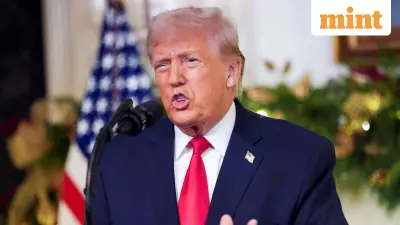
The White House is actively preparing contingency plans as the US Supreme Court deliberates on a case that could fundamentally challenge the legal foundation of former President Donald Trump's tariff authority. The outcome of this landmark legal battle may significantly constrain presidential power in international trade matters.
Constitutional Showdown Over Trade Powers
At the heart of the legal confrontation lies Section 232 of the Trade Expansion Act of 1962, which previous administrations have interpreted as granting broad authority to impose tariffs based on national security concerns. However, legal experts and trade partners have increasingly questioned whether this interpretation oversteps constitutional boundaries.
The Biden administration, while frequently critical of Trump's trade approach, now finds itself defending the same legal authority it inherited. This creates a complex political and legal dilemma for the current White House.
Potential Implications for US Trade Policy
A Supreme Court ruling against the government could trigger immediate consequences:
- Invalidation of existing tariffs imposed under Section 232 authority
- Requirement for congressional approval for future national security-based tariffs
- Potential reopening of trade negotiations with affected countries
- Significant impact on industries that benefited from tariff protection
Global Economic Ramifications
The case carries substantial implications for international trade relations, particularly with major economic partners like China, the European Union, and India. Many US trading partners have long argued that the national security justification has been improperly used to implement protectionist policies.
Legal experts suggest that a ruling limiting presidential tariff authority could reshape global trade dynamics and potentially reduce trade tensions that have characterized recent US economic policy.
The administration's preparation for "Plan B" indicates recognition that the court may deliver an unfavorable ruling, forcing a rapid recalibration of US trade strategy. This development comes amid ongoing economic challenges and shifting global supply chains.





